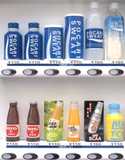Health branding / Global
Drug Wars
The practices of the health and pharmaceutical industries have no shortage of critics but there's an equally tricky battle to change consumers' perceptions once a product get the green light. Monocle meets some of the creatives on the feel-good frontline.
Pocari Sweat
Japan
The name never fails to raise a smile among English speakers but the manufacturers of Pocari Sweat are having the last laugh. Otsuka Pharmaceutical has sold over 30 billion cans and bottles of its non-carbonated sports drink since it was launched in 1980. The R&D team tried over 1,000 attempts before hitting on the right recipe. The salty-sweet flavour with a hint of grapefruit is an acquired taste but after a publicity campaign during which over 30 million samples were handed out to everyone from businessmen at saunas to children playing baseball, the Japanese public took to it. No expense has been spared: one year, agency Dentsu went into orbit and shot a TV advert on the International Space Station.
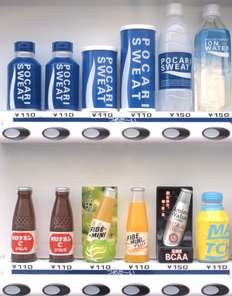
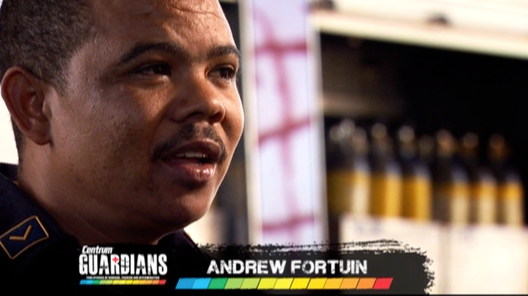
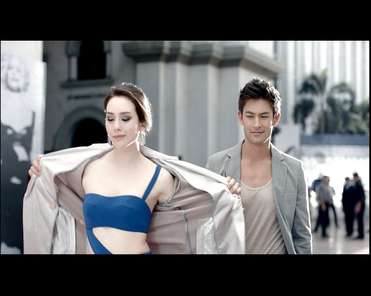
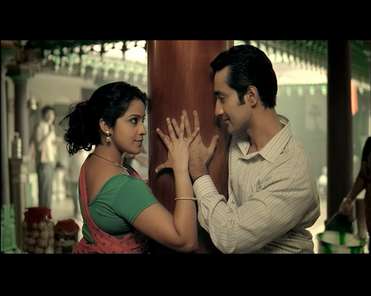
Centrum
South Africa
In South Africa, the world’s top-selling multivitamin, Pfizer’s Centrum, goes head-to-head with sangomas (witchdoctors) in the race for consumers’ rands and immune systems. While the sangomas are on every street corner, Pfizer has to heed strict advertising rules.
“We had to find a way to position Centrum as a brand that goes beyond superficial lifestyle benefits,” says Sheila McGillivray, managing director of Tribe advertising agency in Johannesburg. Tribe devised a TV show called Centrum Guardians, broadcast weekly on SABC3. The series, presented by investigative anchor Ruda Landman, shows re-enactments of heroic feats by South Africa’s emergency services. They vie for a R60,000 (€5,700) prize that somewhat less heroically is not provided by Pfizer but by money raised from viewers’ SMSes. Pfizer funds the production of the R6m (€570,000) show from its corporate social responsibility budget.
Q&A
Priti Nair
Director, Curry Nation
India
India is not known for its subtle advertising campaigns but a couple of recent adverts raised eyebrows around the world. One, for a vaginal-whitening lotion, featured a wan-looking woman whose relationship seemed to turn around, post-cream. Another was for a vaginal-tightening cream, bearing the rather indelicate name of 18 Again. The television promo showed a housewife leading her husband in a lusty dance around a courtyard. The ad was banned within a week of being on air.
What was your reaction when Ultratech approached you to do the campaign for 18 Again?
I didn’t even know there was a product like this on the market. What excited us was that it was a completely new category and a huge challenge in a culture like ours to market it, as you have to tread a little carefully. We’ve had problems in the past with people thinking even a shampoo ad was too racy.
We thought that as this is a product allowing women to take their own sexuality into their own hands, the core of it would be women’s empowerment. The ad shows the woman in the spotlight; everyone else, including her husband, is a prop to her.
Where did the campaign feature?
We had full-page ads in the Times of India and other English-language newspapers explaining the product in detail. The television ad ran on some news channels but only for a week before the Advertising Standards Council pulled it. They’d only received two formal complaints but there had been a lot of negative chatter online.
Are you pleased with the level of publicity you ended up with for the product?
Yes the product became well- known but on a personal front I’m quite saddened by the reaction. I understand there are sensitivities and mostly to do with the fact that the words “virgin” and “vagina” were broadcast, but the issues the product deals with are often talked about behind closed doors. I genuinely believe in the product and that it should be advertised the way it was.
Q&A
Barry Smit
Director, SE Asia (BDF), Draftfcb
Bangkok
Draftfcb is the ad agency behind some of Nivea’s most successful skin-whitening campaigns. Known for creating cheeky, humorous and witty adverts, Draftfcb produces its work in Thailand and shows them all across Southeast Asia.
What’s been your toughest brief so far?
When Nivea introduced the whitening deodorant, guys here said, “Why do I need a white armpit?” So we introduced it as something you do for your girlfriend: this is a spot for comforting, a spot for hugging, a spot she’d like to get close to, so you want to make sure she won’t be repelled by it.
And your most successful delivery on a brief?
Thai consumers like humour so for Jealous (pictured below), a commercial for body-whitening lotion, we used the insight that Thai women say their guys are always looking at other women. The commercial shows a couple walking down a street but the guy is looking at all these other girls. So the girlfriend throws off her coat and she’s wearing this stunning nothing-ness. Suddenly everyone’s looking at her. He puts his arm around her and says, “OK, I got it, we’re together.” She was what we call “sassy” – the kind of confident, independent attitude typical of a Nivea girl.

